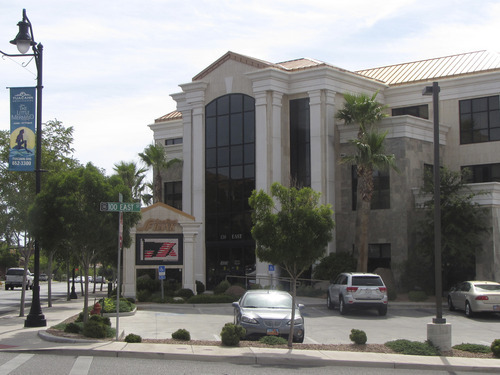This is an archived article that was published on sltrib.com in 2011, and information in the article may be outdated. It is provided only for personal research purposes and may not be reprinted.
Federal regulators have ordered SunFirst Bank to raise additional capital or find a buyer for the struggling St. George bank.
The order, issued July 28 by the Federal Deposit Insurance Corp. (FDIC), was made public late Friday. It gives SunFirst 30 days to comply.
Known as a "prompt corrective action," or PCA, the order is the last public action that regulators must take under federal law before deciding the bank's future.
"It's under stress, obviously, or they wouldn't have gotten the PCA letter," Paul Allred, deputy commissioner of the Utah Department of Financial Institutions, said Monday. "As far as I know, they are still trying to raise capital."
Gerry Smith, an adviser to SunFirst's board of directors who has been tapped to be president of SunFirst, declined to comment. An FDIC representative did not respond to a request for comment. Should the bank fail, depositors are insured up to $250,000.
Regulators have closed five Utah banks since 2009, and all received PCAs before they were seized.
Allred said a PCA doesn't always mean a bank will close. He noted that some banks work out their problems before regulators act.
Although SunFirst may survive, St. George's biggest hometown lender is in trouble. The bank is struggling with a mix of financial and legal problems arising from home-building and land-development loans it made before the Washington County housing bubble popped in 2007.
The bank's mounting loan defaults eventually came to the attention of the FDIC. In October 2009, the federal agency ordered SunFirst to increase its capital to at least 11 percent of assets, which were mostly loans. Despite the order, SunFirst's capital has continued to erode. It stands at 6.2 percent of assets, and in June, the FDIC notified SunFirst that it was "significantly undercapitalized."
The 2009 order apparently put SunFirst on a path that resulted in a federal indictment in April of its vice chairman and part-owner, John Campos.
Campos was accused by the U.S. attorney for the Southern District of New York of allegedly arranging to process illegal Internet poker transactions through the bank in return for a $10 million infusion of new capital, as well as a $20,000 bonus payment. He was one of 11 people charged with fraud, money laundering and illegal gambling.
Campos was removed from his post immediately after the indictment.
The order also may have caused SunFirst to sell stock to Jeremy Johnson, who is the St. George businessman and philanthropist accused of mail fraud by a federal grand jury. Johnson is being held in the Davis County jail.
Johnson's legal woes don't end there. The Federal Trade Commission alleges in a lawsuit that he defrauded consumers out of $275 million through a massive Internet marketing scam.
John Allen, the bank's president, was demoted earlier this year. Smith, his successor, can't take over until federal and state regulators grant permission.
pbeebe@sltrib.com Twitter: @SLTribPaul



